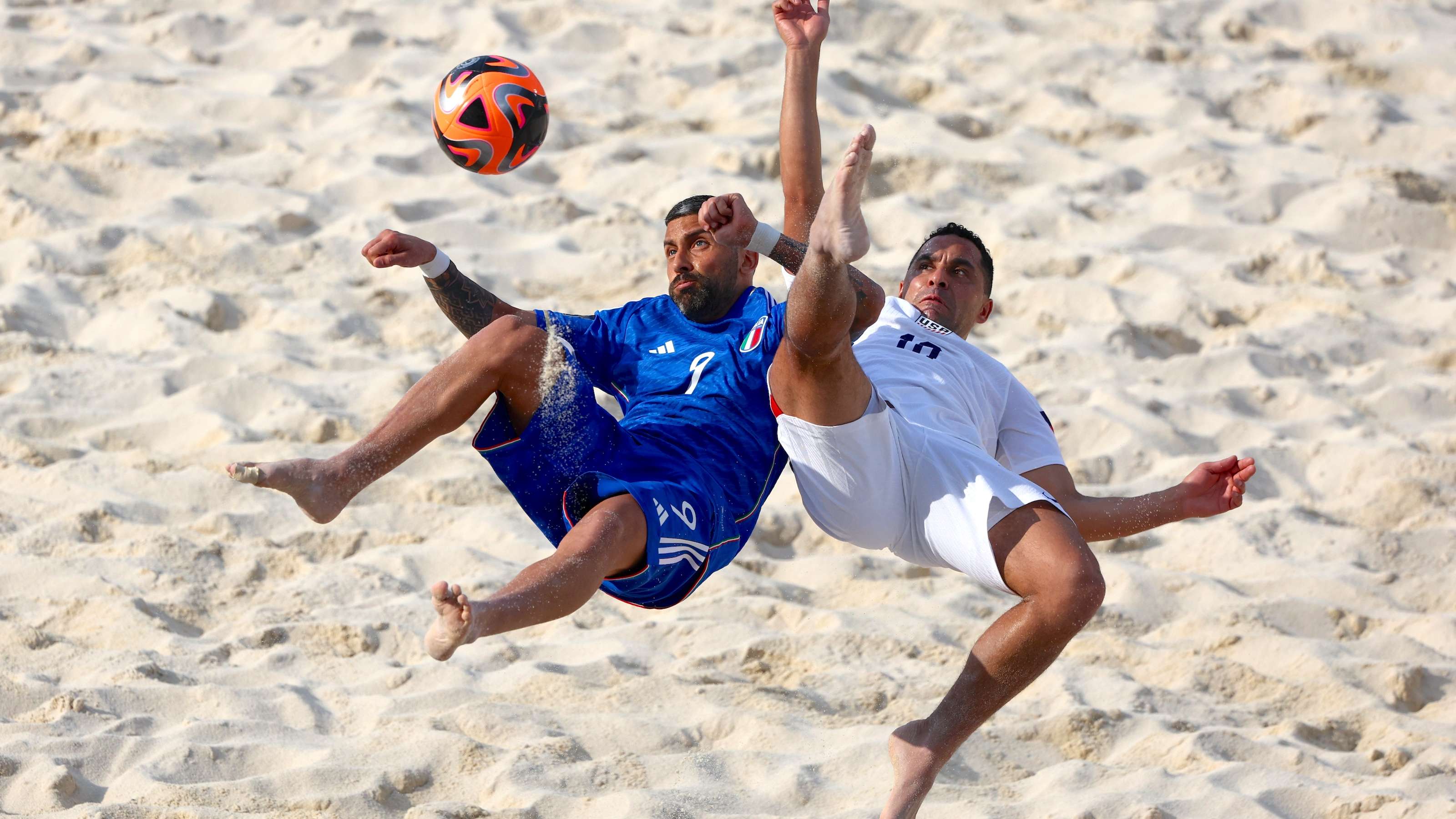How Beach Soccer is Shaping Traditional Football Strategies
Beach soccer, also known as sand football, has experienced considerable growth in recent years. Its unique style and rapid gameplay have impacted traditional football (soccer) in a variety of ways. While the two sports may seem worlds apart, there are numerous aspects where the principles and strategies from beach soccer have found their way into the more formal, 11-a-side football format. This cross-pollination of ideas is creating new tactical approaches and reshaping how teams play the game on grass.
In this article, let’s look at the Influence of beach soccer on football and how the sport is shaping traditional football strategies.

1. Technical Skills Development
One of the most immediate influences of beach soccer on football is its impact on individual technical skills. Playing on sand, with less traction and a smaller playing area, forces players to develop superior ball control, quick thinking, and close-quarters dribbling. These skills are transferable to traditional football, where quick decisions and tight ball control in high-pressure situations are essential.
- Improved Dribbling: Beach soccer demands that players dribble with greater precision and under more intense pressure, which enhances their ability to handle the ball in tight spaces. This is evident in players like Lionel Messi, who has often credited early experiences with smaller-sided games for his extraordinary dribbling ability.
- First Touch and Balance: Players in beach soccer must be able to control the ball effectively with a single touch, as the uneven surface makes ball control more challenging. The techniques learned in beach soccer help players maintain composure in the chaotic environment of a traditional football match.
2. Tactical Influence on Attacking Play
Beach soccer is a fast-paced game with a heavy emphasis on offensive play. This has led to an increased focus on quick transitions and attacking strategies in traditional football, where more teams are embracing a high-press, counter-attacking approach.
- Counter-Attacking Play: The fast-paced nature of beach soccer, where players transition rapidly from defense to attack, has influenced traditional football's counter-attacking strategies. Teams are increasingly looking to break quickly when they win the ball, utilizing swift, direct passes to exploit spaces left by opponents. Coaches are adopting the fast-paced counter-attacking approach seen in beach soccer to foster more dynamic and explosive transitions within their teams.
- Creativity in Attack: Beach soccer is known for its flair and creativity in attack, with players often taking risks and attempting audacious moves. This has encouraged traditional football teams to embrace more creativity, particularly in the final third of the pitch. Players like Neymar and Kylian Mbappé, recognized for their flair and unpredictability, often display skills that echo the techniques found in beach soccer.
3. Enhanced Fitness and Agility
Beach soccer players need exceptional physical conditioning due to the demanding nature of playing on sand. The resistance of the sand forces players to exert more energy with every movement, making the sport a powerful tool for developing speed, strength, and endurance. Football players who engage in beach soccer often see improvements in their overall fitness, particularly in agility, balance, and explosive power.
- Improved Speed and Power: Beach soccer highlights the importance of quick sprints, agility, and swift directional changes. These attributes are advantageous for conventional football players, particularly in confined areas and during fast-paced counter-attacks.
- Better Stamina and Endurance: The intensity of beach soccer, where players are required to run on a soft, unstable surface, builds stamina and overall endurance. This can be beneficial for footballers who need to maintain a high level of performance throughout a full 90-minute match.
4. Psychological Impact: Mental Toughness and Creativity
The unique environment of beach soccer forces players to be mentally resilient. The challenging and tiring conditions of competing on sand, along with the reduced playing area and the necessity for quick decision-making, foster a robust mental attitude in players. These psychological advantages are highly applicable to conventional football, where mental strength is equally important as physical prowess.
- Creativity and Risk-Taking: The less structured, more chaotic nature of beach soccer encourages players to take more risks and be creative with their play. This risk-taking mentality is gradually influencing the way traditional football teams approach matches, with managers more willing to experiment with unpredictable and unconventional tactics, particularly in attacking play.
- Concentration and Focus: The challenge of playing on sand requires increased concentration and focus, as a lapse in attention can result in a mistake or missed opportunity. This focus on concentration has helped foster players who can maintain their mental sharpness in the more structured game of traditional football.
5. Coaching and Training Methods
Coaches are beginning to integrate aspects of beach soccer into their training regimens, recognizing its ability to improve various aspects of a player’s development. Beach soccer drills are being used to help players enhance their passing, dribbling, and movement under pressure, all while improving their physical fitness.
- Small-Sided Games and Intensity: Many football coaches now incorporate small-sided games or beach soccer-inspired drills into training sessions. These small, high-intensity drills help players improve their decision-making, teamwork, and creativity. The ability to play in tight spaces and under pressure is key in both sports, and these training methods help simulate those conditions effectively.
Conclusion
Beach soccer's influence on traditional football is becoming increasingly apparent. From the development of technical skills to tactical innovation and fitness enhancement, beach soccer provides a unique training ground for footballers, helping them refine their abilities in ways that can be transferred to the larger, more traditional football pitch.
Both coaches and players are recognizing the advantages of integrating beach soccer concepts into football tactics, especially as the sport progresses towards a faster and more dynamic style of play. The intersection of these two sports is likely to expand further, resulting in even stronger connections between them in the future.
Cover Credits - World Cup


.png)


Leave a Reply